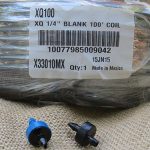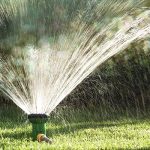Keeping a beautiful landscape in South Texas requires a delicate balance of water, nutrients, sunlight and the right plants to make everything work in harmony. If any of these facets increases or decreases, harsh changes can occur to the landscape very quickly.
Take water for instance. The right amount of water promotes plant growth without oversaturating the soil and washing out essential plant nutrients. Too little water and the soil becomes hot, dry and cracked, causing plant stress and vulnerability to insects, drought and disease. Too much water and the soil becomes muddy, the plants can’t get oxygen to the roots through the saturated soil, and possibly the plants will grow out of control and become too lush.
But there are some creatures in south Texas that absolutely love it when the soil is overly moist and there is plenty of lush, dense vegetation around.
These moisture-loving creatures may be obvious to some, but here they are:
- Fire ants are originally from Brazil and thrive in tropical conditions where soil is moist and sunlight is plentiful. In lawns where overwatering is the normal practice, fire ant colonies build large mounds and populations usually increase to several mounds across the yard. Keeping water applications to just the right amount helps keep fire ants from going too crazy.
- Mosquitoes may lay their eggs in standing water and flooded containers, but also need to have cool, shady and humid places to rest during the day when they aren’t trying to bite you. Areas with thick shrubs, deep shade, dense, tall grass and thick trees will harbor more adult mosquitoes than those with evenly watered landscapes and thinner vegetation. In addition, there is some correlation that city areas and neighborhoods with overwatered lawns see a higher incidence of West Nile Virus infections than areas with normal or lower-than-normal irrigation.
- Pill bugs aren’t insects at all, but they enjoy humid moist conditions brought on by excessive moisture. Usually feeding on decomposing organic material, pill bugs will eat tender green vegetation in landscapes and gardens when moisture levels are really high and cause damage to plants with value.
- Snails are molluscs, related to clams, squids and octopi. Snails thrive in high moisture conditions, feeding on decaying vegetation and will damage tender green plants in lush conditions. Over watering your landscape makes for more vegetation and more food for these slow-moving critters.
The moral of the story: only apply as much water as your plants need and your soil can handle. Your plants will appreciate it, your shoes won’t be muddy and your skin won’t become a mosquito buffet.




